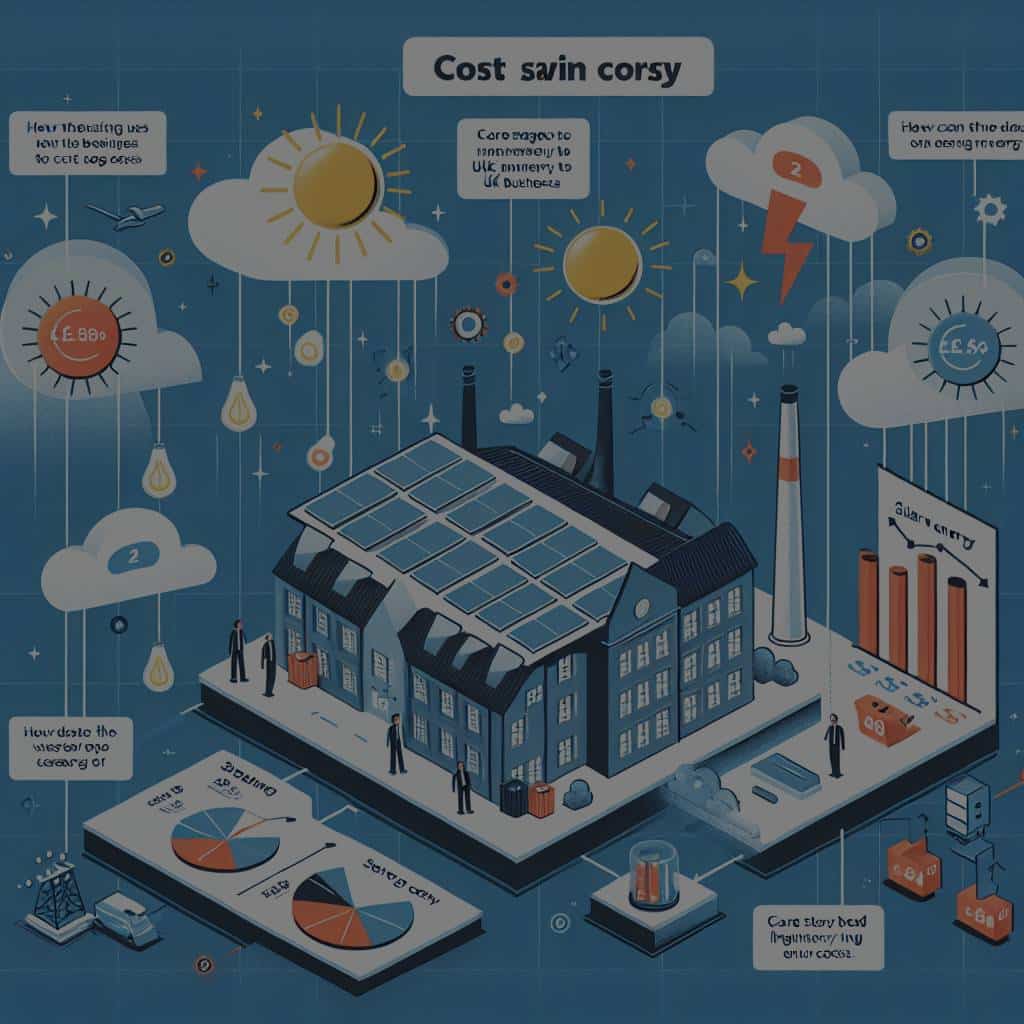In an era where renewable energy is gaining prominence, businesses are in a prime position to shift paradigms and adopt cleaner, more sustainable energy sources. One such source is solar energy, a virtually inexhaustible resource that can significantly benefit businesses in the UK. Specifically, by installing solar panels, businesses can harness the sun’s energy, reduce their carbon footprint, and most significantly, cut operational costs. But how can UK businesses effectively utilize solar energy, and what does the transition involve? In this article, we will delve into the specifics of solar power for commercial use, detailing the advantages, processes involved, and the financial incentives that make it a feasible choice for businesses.
The Benefits of Solar Energy for Businesses
Solar energy presents numerous advantages for businesses that go beyond environmental sustainability. When you install solar panels, you are not just participative in the fight against climate change; you are also primed to benefit from economic savings, energy independence, and more.
Also to discover : How to Build a UK-Based Global Brand in the Vegan Market?
Cost Savings
One of the most notable benefits of solar energy is the cost savings. Solar panels can significantly reduce your business’s electricity bills. Once installed, a solar panel system harnesses the sun’s energy to generate electricity, reducing the amount of electricity you need to buy from the grid. This directly translates to lower utility bills. According to the Solar Trade Association, businesses can save up to 50% on their electricity bills by switching to solar power.
Energy Independence
By generating your own electricity, your business becomes less dependent on the grid. This energy independence mitigates the risk of rising energy prices, and provides a reliable power source even during power outages.
In the same genre : What Is the Effect of UK Immigration Policies on the Tech Industry Workforce?
Enhanced Business Reputation
Implementing solar energy solutions can significantly boost your business reputation. Consumers and clients are increasingly drawn towards businesses that demonstrate a commitment to sustainability and carbon reduction. By showcasing your solar panels or promoting your green initiatives, you can attract a more conscious customer base.
The Process of Solar Panel Installation
Understanding the process behind solar panel installation will help your business transition to this renewable energy source smoothly. Here is a simplified breakdown of the process.
Site Assessment and Design
The first step to installing solar panels is conducting a thorough site assessment. This involves evaluating the energy requirements of your business, the suitability of your premises for solar panel installation, and the orientation and tilt angle that will maximize solar energy yield.
Installation
Once the design is finalized, the actual installation takes place. This involves mounting solar panels onto your building’s roof or other suitable location, and integrating it into your existing electricity system.
Commissioning and Monitoring
After installation, the system is checked and commissioned to ensure it’s working correctly. Most solar panel systems also come with monitoring software that allows you to track the system’s performance and the amount of electricity generated.
The Economics of Solar Panels: Understanding Costs and Incentives
While the benefits of solar energy are clear, it’s important to understand the costs involved and the financial incentives available that make solar panels a viable investment for businesses.
Costs
The costs of a solar panel system for commercial use can vary widely depending on the size and complexity of the system. However, recent years have seen a significant drop in solar panel costs due to advancements in technology and increased market competition.
Incentives
The UK government offers several financial incentives to encourage businesses to switch to solar power. These include the Feed-In Tariff scheme, where businesses are paid for the electricity they generate and any surplus they export back to the grid, and the Renewable Heat Incentive, which provides payments for generating heat from renewable sources.
How Solar Energy Helps Businesses Reduce Carbon Footprint
Apart from the financial benefits, solar energy is a powerful means for businesses to reduce their carbon footprint and contribute to climate change mitigation. Let’s explore how solar panels can help businesses achieve these green goals.
Reduced Carbon Emissions
Solar panels produce electricity without burning fossil fuels, thus reducing the amount of carbon dioxide and other harmful greenhouse gases released into the atmosphere. By switching to solar power, businesses can significantly cut their carbon emissions and contribute to the global effort to combat climate change.
Conservation of Natural Resources
Solar energy is a renewable resource, meaning it won’t run out unlike fossil fuels. By utilizing solar power, businesses can help conserve natural resources for future generations.
Promotion of Green Technologies
By investing in solar panels, businesses also support the development and proliferation of green technologies. This can lead to further advancements in renewable energy solutions, driving the transition towards a low-carbon economy.
With these points in mind, it’s clear that solar energy presents a compelling case for UK businesses. The benefits are manifold – from significant cost savings to enhanced business reputation, and from energy independence to creating a positive environmental impact. The process of solar panel installation is straightforward, and with the available financial incentives, the transition to this renewable energy source can be a sound investment. Now is indeed the time for businesses to harness the power of the sun, and steer towards a more sustainable and economically beneficial future.
Maximizing Solar Energy Efficiency in Business Operations
The decision to transition to solar power is merely the first step in a business’s journey towards sustainable energy use. To truly reap the benefits of solar panels, businesses need to take steps to maximize their efficiency. By doing so, they can further cut down on their energy bills and optimize their investment in renewable energy.
Regular Maintenance and Cleaning
Solar panels require regular maintenance to ensure they are working at optimum capacity. This involves cleaning the panels to remove dust and debris that may hinder their performance. Regular inspections should also be carried out to check for any damage or wear and tear, and necessary repairs should be done promptly.
Battery Storage
Incorporating battery storage into a solar system allows businesses to store excess solar power for use during cloudy days or at night. By doing so, businesses can reduce their reliance on the grid and further cut down on their energy bills.
Energy Efficiency Measures
While installing solar panels is a significant step towards reducing energy costs and carbon footprint, businesses should also look into other energy efficiency measures. This could include upgrading to energy-efficient appliances, improving insulation, and educating employees about energy-saving practices.
Smart Energy Management
Smart energy management systems can help businesses monitor and control their energy use, helping them to identify areas for improvement and to optimize their use of solar power.
Conclusion: A Bright Future with Solar Energy
The transition to solar energy presents an exciting opportunity for UK businesses. By investing in solar panels, businesses can reap substantial cost savings, achieve energy independence, and significantly reduce their carbon footprint. With the additional benefits of enhanced business reputation and financial incentives offered by the UK government, the path to a sustainable future has never been clearer.
But the journey does not end with the installation of solar panels. To truly maximize the benefits of solar power, businesses must also focus on maintaining their solar system, integrating battery storage, implementing energy efficiency measures, and deploying smart energy management.
As awareness about environmental sustainability continues to grow, businesses that make the switch to renewable energy will undoubtedly be at the forefront of this green revolution. With the promise of long-term cost savings and a positive impact on the planet, solar energy indeed shines bright as the future of business operations in the UK.
With all the benefits and incentives in place, now is indeed the perfect time for UK businesses to harness the power of the sun and lead the charge towards a sustainable future. The future is looking bright, and it is powered by solar energy. So, let’s take a step towards this bright future and make the switch to solar power today.











